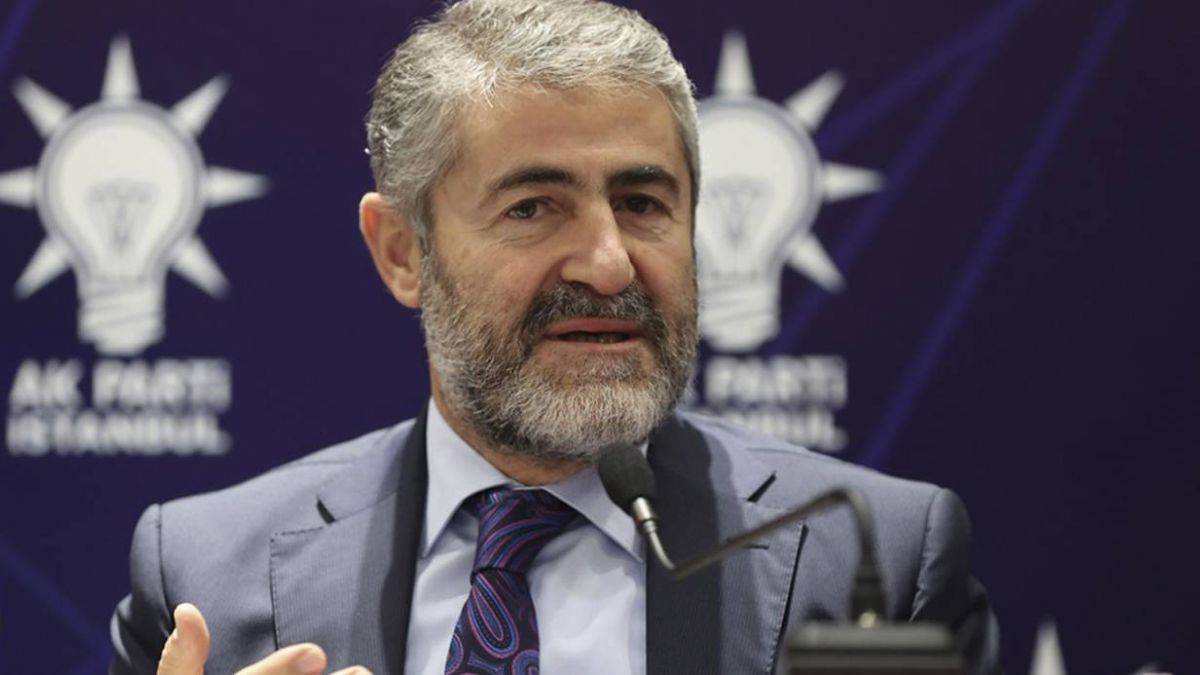Turkey is determined to continue a policy of interest rate cuts, and “manipulative attacks” on the lira, which has plunged to all-time lows this week, will not leave any lasting damage, Deputy Finance Minister Nureddin Nebati said in a series of tweets late on Nov. 25.
“Every time we attempted to implement our low interest rate policy since 2013, we have come across a powerful objection. This time, we are determined to implement this,” he wrote.
In a historic slide, the lira hit a record low of 13.45 against the dollar on Nov. 23, triggered by President Recep Tayyip Erdoğan’s defense of the central bank move to slash the policy rate to 15%, despite near 20% inflation.
It hit all-time lows in 11 consecutive sessions and has lost as much as 45% of its value this year, with around half of those losses occurring since the start of last week. After a rebound in the last three days, it stood at 12.10 versus the dollar at 0505 GMT.
“We need to evaluate Turkey’s economy from a bigger window, rather than a narrow perspective only taking the exchange rate as a basis,” Nebati wrote on Twitter. “Under the current market conditions, there is no problem with the policy rate being kept lower than inflation.”
Nebati’s boss, the Treasury and Finance Minister Lütfi Elvan, who is seen as a moderate, has kept mostly out of the spotlight in recent months and there has been speculation he could be ousted, though the Palace has not commented.
Asked about the speculation, opposition İYİ (Good) leader Meral Akşener told FOX TV: “I think Mr. Nebati is our new minister candidate, that’s what it seems.”
Opposition politicians have accused Erdoğan of dragging the country into a crisis and called for immediate elections, while many economists have described the current policy as reckless.
Nebati added that the easing would provide stimulus to the economy to boost employment and exports, while tackling the current account deficit. He said revenue earned from the low rates policy would be directed to key imports, such as energy and raw materials.
“The manipulative attacks waged on the Turkish Lira over our low interest rate policy will not seriously damage our economy,” he said. “Though there were turbulences in the real sector with the last exchange rate attack, our economy maintains all of its strength,” he added.
“Since 2013, every time we attempted to implement our low interest rate policy, we were met with strong opposition. This time, we are determined to carry this out.”
Many Turks, already facing high inflation, fear price rises will accelerate. Several told Reuters the dizzying collapse of the lira was upending their household budgets and future plans.
Despite mounting criticism, officials have told Reuters that Erdoğan had ignored appeals, even from within his government, to reverse policy.
Instead, he has defended the policy and vowed to win what he called an “economic war of independence.”
Nebati said the rate-cutting policy would help Turkey in the post-pandemic era through “attractive investment opportunities” like a developing technology sector, qualified workforce, modern logistics infrastructure and young population.
“I suggest that all parties re-evaluate the wrongness of the ‘high interest, low inflation’ policy, that has been dictated to us, specifically for our country, which has a structural current account deficit,” he said.
Duvar English
